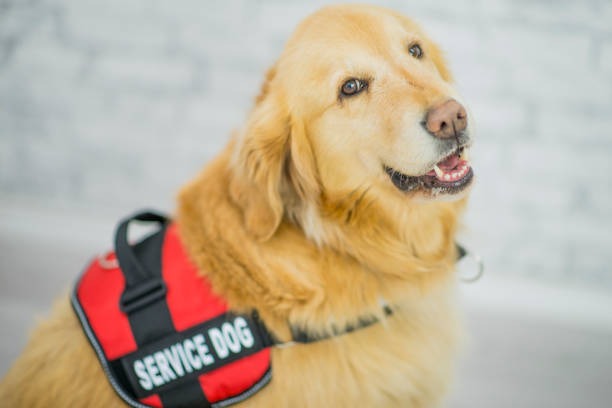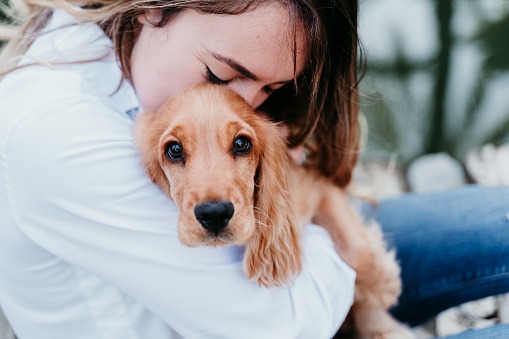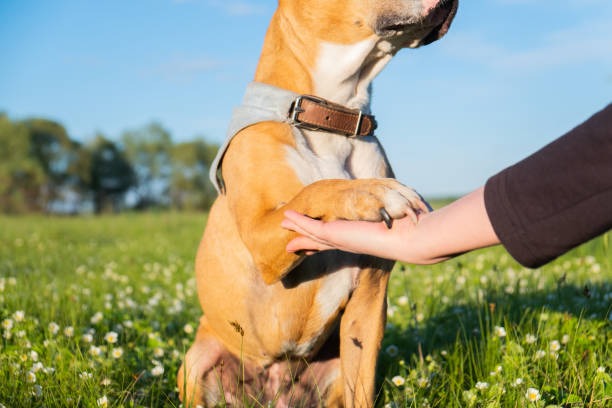Please don’t judge me, but I will start this article with the truth. I don’t particularly appreciate spending time with animals, especially dogs. Yes, they can be cute and adorable most of the time. But I somehow prefer them as creatures that need to stay away from me. No, I am not scared of them and do not hate them. It is just that I somewhat do not see their significance in my major life functions. I know a couple of people who take domestic animals such as dogs as their pets and make them part of their families. Before, I thought I wouldn’t need or want it. But everything changed when I suffered from a mental and emotional overload crisis– depression.
What Changed My Mind
At first, things in my life were okay that way. I was living with my boyfriend, and we had been planning to get married. But unfortunately, my soon-to-be husband got into an accident and died last year. It was a different level of pain, and I couldn’t summon the courage to accept the truth. I was in shock and filled with denial. I could not fathom life without the one person I wanted to spend it with. All that is left with me is sorrow. The emotions I experienced were ones I never imagined I would go through. I was sad and devastated, and I got stuck in a void. I felt so alone and hopeless. I suffered from severe depression, and my dog provided crucial emotional and psychiatric support during this challenging time.
Last year was the worst part of my entire existence, and until now, it still was the most painful experience I have had to endure recalling. I have been depressed for a long period, and I thought it was the end of me. I somehow became a different person and pushed away my family and friends. I shut down. I was so hurt that I thought I would never get better. But that was before. Before, I even knew that my life would change once I met Geevo.

Geevo is a service dog. Honestly, I was hesitant to have him at first because I never really believed that a service dog could assist someone with emotional and mental health conditions. As I said, animals are not for me. But my best friend insisted that I should try it, and I did get one eventually. And after a couple of weeks of spending time with Geevo, I was so amazed to see how disciplined, focused, and well-behaved a dog can be. I was in awe. It genuinely convinced me that a dog could be much of a help, especially in depressing times.
The companionship that my dog is giving is what I am truly blessed with. In times when I wasn’t able to control my emotions, Geevo was always there to comfort me. Amazingly, he tends to my needs, and it is as if he knows what to do every time I am not feeling okay. Seeing the dog smile and the way he cuddles with me alleviates my depression. Honestly, there are times that I am worried that my dog is taking too much of the negativities in me and making him feel sad. But I was genuinely surprised how they could take and absorb all those negative emotions and give good ones in return. The dog somehow knows how to assist me in removing all those depressing burdens I have during the grieving process.
I never believed that service dogs would greatly provide assistance in times of mental depression. I guess I was wrong all along. I never imagined them being the last hope I could get to alleviate my mental anguish. So if there is one thing I would be thankful for, that is Geevo’s presence in my life. I could never thank him enough for his ability to perform specific tasks and for supporting me through the darkest days of my life.
What Types Of Mental Illnesses Qualify For A Service Dog?
The mental illnesses that qualify a psychiatric service dog (PSD) are included post-traumatic stress disorder (PTSD), schizophrenia, anxiety, bipolar disorder, and depression. A service dog is a particular class of service animal skilled and specifically trained to aid people with depression.
What Are The Best Service Dogs For Anxiety And Depression?
Some of the breeds that fit well as psychiatric service dogs for depression include huskies, boxers, German shepherds, Labrador retrievers, golden retrievers, and poodles.
How Much Is A Service Dog For Depression?
A psychiatric service dog can be a little expensive because of the high cost of all the required training. Usually, it costs about $20,000 and $30,000. This rate includes vet care, temperament testing, food, and extensive training.
Is Getting A Dog Good For Depression?
Pets, primarily dogs and cats, can provide emotional support and contribute to improved mental health by reducing symptoms of anxiety, stress, and depression. This is especially true for service dogs, as they are trained to perform specific tasks that aid in managing depression, alleviate feelings of loneliness, encourage physical activity and play, and even enhance cardiovascular well-being. Caring for a dog also fosters emotional growth and promotes an active and secure lifestyle. In addition, these loyal companions offer exceptional support for older adults.
How Do I Know If I Need A Support Dog?
Needing psychiatric service animals or emotional support animals comes with certain qualifications. You must first meet several criteria to be eligible to get one. Usually, this includes having a person’s disability, such as being unable to walk, see, or talk. Additionally, support animals can be obtained if you are dealing with a debilitating illness or depression.
Can Dogs Tell If You Have Mental Anxiety?
Fortunately, dogs can sense their human’s inner issues, such as depression. Many of these dogs react in a caring way towards their humans and help ease loneliness and sadness most lovingly and cutely. Dogs make use of their remarkable sense of smell to understand and perceive the things around them. They can also detect changes in various brain chemicals, including those associated with depression and anxiety. This ability makes them invaluable as psychiatric service dogs, trained to perform essential tasks to support individuals struggling with emotional and mental health challenges.
What Do Emotional Support Animals Do?
ESAs or Emotional Support Animals provide therapeutic benefits to certain people with psychological health issues such as phobias, post-traumatic stress disorder, anxiety, depression, and other physical or mental impairment. But like other medical conditions solution, an emotional support dog should be prescribed by a licensed mental health professional.

Can Animals Sense Mental Anxiety?
Yes. Just think of a scenario where our dogs sense a threat; they become alert and get protective. Therefore, dogs can sense depression, and many respond in a loving and caring way to their humans to cheer them up. Dogs use their extraordinary sense of smell to take in and understand their surroundings.
How Do You Get A Service Dog For Depression?
Acquiring a service dog to help with your depression is not that complicated. However, it needs to go through a series of processes. You should have a recommendation letter from a certified mental health professional stating that your depression keeps you from doing at least one significant daily life chore or most daily tasks without support or aid.
How Do You Train A Service Dog For Depression And Anxiety?
Training service dogs for people with emotional and mental health condition is the same as training an ordinary dog with some tricks. For example, when your dog focuses on what is happening, reward the dog. Let your dog learn cautions like a shove and follow up with a verbal order. From there, show the anxiety symptoms and the verbal order for the warning sign. When the dog practices the warning while practicing the anxiety indications, reward your dog.
What Can A Therapy Dog Do?
Therapy dogs provide relief to those with depression and anxiety-provoking psychiatric conditions. These animals bring comfort to those who are depressed. These dogs also offer affection to humans in institutions such as those staying longer in nursing homes, hospitals, and schools.
What Animal Is Good For Depression?
A therapist with expertise in the animal therapy area uses the most common emotional support animals for depression, such as dogs and cats. These animals help treat people with depression. It is referred to as animal-assisted interventions.
Can A Dog Be Mad At You?
Honestly, yes. The possibility of dogs getting mad at you is high, especially if you constantly make them feel upset. But here’s the good news. Dogs do not get mad or angry at you the way you imagined. It is different from the actual thing. According to PetMD, while dogs unquestionably feel a series of negative emotions, they don’t connect abuse or blame to those sentiments. They feel sad, but they do not entirely get angry for emotionally hurting them.
Can Any Dog Be A Therapy Dog?
Yes, on several occasions. But note that a certified therapy dog must be friendly and at least one year old to become a therapy dog. Any breed can qualify to give people affection and comfort in schools, retirement homes, mental health institutions, clinics and hospitals, airports, and many other settings.

Insight
Geevo, my dog was so sweet, and he was so focused on providing me with love and care. Yes, I still think of my boyfriend from time to time, and it still pains me to recall that most agonizing death of his. But fortunately, I found myself in the arms of loving animals. Because right now, I realize that my mental and emotional health is more important than my depression. I will be forever thankful for my recovery, and I owe it to my service dog. It is important to also provide service dogs the love and appreciation they deserve.